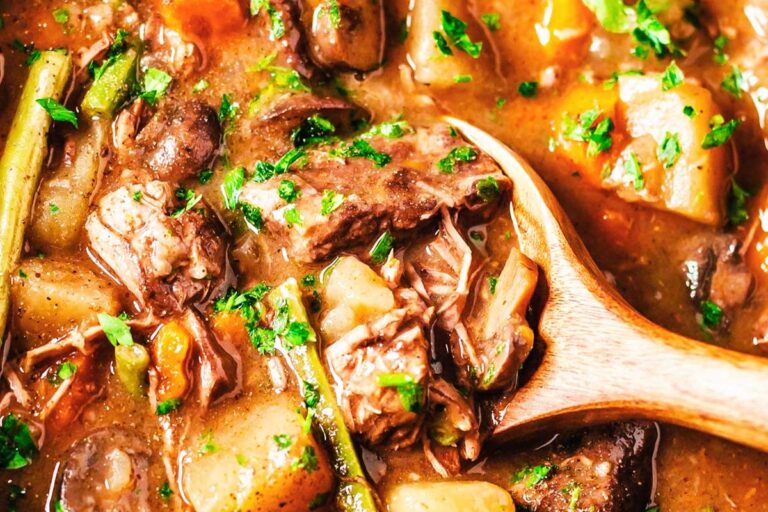20 Essential Foods You Need To Be Eating For a Long And Healthy Life
Eating a balanced diet rich in nutritious foods is crucial for longevity and overall well-being.
The right foods can help protect against chronic diseases, boost your immune system, and provide the energy you need to thrive. Incorporating these nutrient-dense foods into your daily meals can lead to significant health benefits and contribute to a longer, healthier life.
Here are 20 foods that experts recommend for promoting longevity and optimal health.
Blueberries

Blueberries are packed with antioxidants, particularly anthocyanins, which help combat oxidative stress and reduce inflammation. These small berries are also high in vitamins C and K, as well as fiber, making them a powerhouse of nutrition.
Regular consumption of blueberries is linked to improved brain function and a reduced risk of age-related cognitive decline. They also support heart health by lowering blood pressure and improving cholesterol levels. Adding a handful of blueberries to your diet can enhance your overall health and contribute to longevity.
Salmon

Salmon is an excellent source of omega-3 fatty acids, which are essential for heart and brain health. These healthy fats reduce inflammation, lower the risk of heart disease, and support cognitive function.
Salmon is also rich in high-quality protein, B vitamins, and selenium, all of which are important for maintaining muscle mass, energy levels, and a robust immune system. Including salmon in your diet a couple of times a week can help you reap these health benefits and promote a longer, healthier life.
Spinach

Spinach is a nutrient-dense leafy green that offers an array of vitamins and minerals, including vitamins A, C, and K, as well as iron, calcium, and folate. Its high antioxidant content helps protect cells from damage and supports overall health.
Spinach is also rich in nitrates, which improve blood flow and cardiovascular health. Regular consumption of spinach can enhance bone health, boost your immune system, and support eye health. Incorporating spinach into salads, smoothies, and cooked dishes is an easy way to add this superfood to your diet.
Almonds

Almonds are a great source of healthy fats, protein, fiber, and essential nutrients like vitamin E and magnesium. They have been shown to improve heart health by reducing bad cholesterol levels and lowering blood pressure.
The antioxidants in almonds also help fight inflammation and support brain health. Eating a small handful of almonds as a snack or adding them to meals can help keep you satisfied, support weight management, and provide long-lasting energy. Including almonds in your diet can contribute to better overall health and longevity.
Avocado

Avocados are rich in monounsaturated fats, which are heart-healthy and help reduce bad cholesterol levels. They also provide a good dose of fiber, vitamins C, E, K, and B-6, as well as potassium.
These nutrients support heart health, aid digestion, and promote healthy skin. The healthy fats in avocados also enhance the absorption of fat-soluble vitamins from other foods. Incorporating avocados into your diet can help reduce inflammation, improve heart health, and support a healthy weight.
Sweet Potatoes

Sweet potatoes are a nutrient-rich root vegetable that provides a good source of fiber, vitamins A and C, and potassium. Their high levels of beta-carotene support eye health and boost the immune system.
Their low glycemic index helps regulate blood sugar levels, making them a great option for sustained energy. Including sweet potatoes in your meals can promote digestive health, reduce inflammation, and support overall well-being. They are versatile and can be enjoyed baked, roasted, or mashed.
Walnuts

Walnuts are an excellent source of omega-3 fatty acids, which benefit heart and brain health. They also contain antioxidants, protein, fiber, vitamins, and minerals, including magnesium and copper.
Walnuts have been shown to improve heart health by reducing bad cholesterol and inflammation. Regular consumption of walnuts can also support brain function and reduce the risk of age-related diseases. Adding a handful of walnuts to your diet can help promote longevity and overall health.
Quinoa

Quinoa is a complete protein containing all nine essential amino acids that the body cannot produce independently. It is also high in fiber, magnesium, B vitamins, iron, potassium, calcium, phosphorus, and vitamin E.
This gluten-free grain supports heart health, aids digestion, and sustains energy. Quinoa is versatile and can be used in a variety of dishes, from salads to main courses. Incorporating quinoa into your diet can enhance your nutritional intake and support a healthy lifestyle.
Green Tea

Green tea is rich in antioxidants, particularly catechins, which help protect cells from damage and reduce inflammation. Regular consumption of green tea is associated with a lower risk of heart disease and certain cancers and improved brain function.
The polyphenols in green tea also promote fat burning and boost metabolic rate. Green tea can improve cardiovascular health, support weight management, and enhance overall well-being. Enjoying a cup of green tea daily can contribute to a longer, healthier life.
Broccoli

Broccoli is a cruciferous vegetable that offers a wealth of nutrients, including vitamins C and K, fiber, and potassium. It also contains sulforaphane, a compound with potent anti-cancer properties. Broccoli supports immune function, promotes heart health, and aids digestion.
Its high fiber content helps regulate blood sugar levels and supports a healthy gut microbiome. Including broccoli in your diet regularly can provide numerous health benefits and contribute to longevity. It can be enjoyed steamed, roasted, or added to various dishes.
Dark Chocolate

Dark chocolate, particularly varieties with at least 70% cocoa, is rich in antioxidants like flavonoids, which help reduce inflammation and improve heart health. Consuming dark chocolate in moderation has been linked to lower blood pressure, improved cholesterol levels, and enhanced brain function.
It also stimulates the production of endorphins, promoting a sense of well-being. Including a small amount of dark chocolate in your diet can satisfy your sweet tooth while providing health benefits. Choose high-quality dark chocolate to maximize its positive effects.
Chia Seeds

Chia seeds are tiny powerhouses of nutrition, packed with omega-3 fatty acids, fiber, protein, and various vitamins and minerals. They help improve digestion, support heart health, and provide long-lasting energy.
Chia seeds also have anti-inflammatory properties and promote healthy skin. When mixed with liquid, they form a gel-like consistency that can be used in puddings, smoothies, or as an egg substitute in baking. Incorporating chia seeds into your diet can enhance your nutritional intake and support overall health.
Turmeric

Turmeric is a spice with powerful anti-inflammatory and antioxidant properties, primarily due to its active compound, curcumin. It has been used for centuries in traditional medicine to treat various ailments.
Turmeric supports joint health, improves brain function, and reduces the risk of chronic diseases. Adding turmeric to your diet can enhance the flavor of dishes while providing significant health benefits. Combining turmeric with black pepper increases its bioavailability, making it more effective.
Garlic

Thanks to its active compound, allicin, garlic is known for its potent medicinal properties. It has been shown to boost the immune system, reduce blood pressure, and improve cholesterol levels.
Garlic also has anti-inflammatory and antioxidant effects, supporting overall health and longevity. Including garlic in your diet can enhance the flavor of meals and provide numerous health benefits. It is most beneficial when consumed raw or lightly cooked.
Greek Yogurt

Greek yogurt is a nutrient-dense food that provides a good source of protein, calcium, and probiotics. Probiotics are beneficial bacteria that support gut health and improve digestion. Greek yogurt also contains vitamins B12 and D, which are essential for energy production and bone health.
Including Greek yogurt can help maintain a healthy gut microbiome, support weight management, and enhance overall well-being. Choose plain, unsweetened Greek yogurt to avoid added sugars.
Berries

Berries, including strawberries, raspberries, and blackberries, are rich in antioxidants, vitamins, and fiber. They help reduce inflammation, improve heart health, and support brain function. The high antioxidant content in berries protects cells from damage and promotes overall health.
Including various berries in your diet can enhance your nutritional intake and provide numerous health benefits. Berries can be enjoyed fresh, frozen, or added to smoothies, cereals, and desserts.
Olive Oil

Olive oil, particularly extra virgin olive oil, is a staple of the Mediterranean diet, known for its numerous health benefits. It is rich in monounsaturated fats, which support heart health and reduce inflammation.
Olive oil also contains antioxidants that protect against cellular damage. Including olive oil in your diet can improve cholesterol levels, support brain health, and reduce the risk of chronic diseases. Use olive oil for cooking, dressings, and drizzling over vegetables to maximize its benefits.
Tomatoes

Tomatoes are an excellent source of vitamins C and K, potassium, and the antioxidant lycopene. Lycopene has been shown to reduce the risk of heart disease and certain cancers, particularly prostate cancer.
Tomatoes also support skin health and improve vision. Including tomatoes in your diet can enhance your nutritional intake and provide significant health benefits. They can be enjoyed fresh, cooked, or in sauces and soups.
Oats

Oats are whole grains rich in fiber, particularly beta-glucan, which helps lower cholesterol levels and supports heart health. They also provide essential nutrients like vitamins B1 and B5, iron, and magnesium.
Including oats in your diet can improve digestion, regulate blood sugar levels, and provide sustained energy. Enjoying a bowl of oatmeal for breakfast or using oats in baking can enhance your overall health and support longevity.
Beans

Beans are an excellent source of plant-based protein, fiber, and various vitamins and minerals, including folate, iron, and magnesium. They support heart health, improve digestion, and help regulate blood sugar levels.
Beans are also rich in antioxidants and have anti-inflammatory properties. Including various beans in your diet can enhance your nutritional intake and provide numerous health benefits. They can be used in soups, salads, stews, and meat substitutes in various dishes.
20 Foods No One Can Afford Anymore Due To Inflation

With the ever-rising living costs, some foods have become luxury items that only the wealthiest can afford. From exotic delicacies to once-affordable staples, the price hikes have made certain foods out of reach for the average consumer.
20 Foods No One Can Afford Anymore Due To Inflation
15 Foods Only The Wealthy and Elite Can Eat Now

Culinary trends are constantly evolving, and some foods have become more than just sustenance—they’ve become status symbols reserved for the elite.







